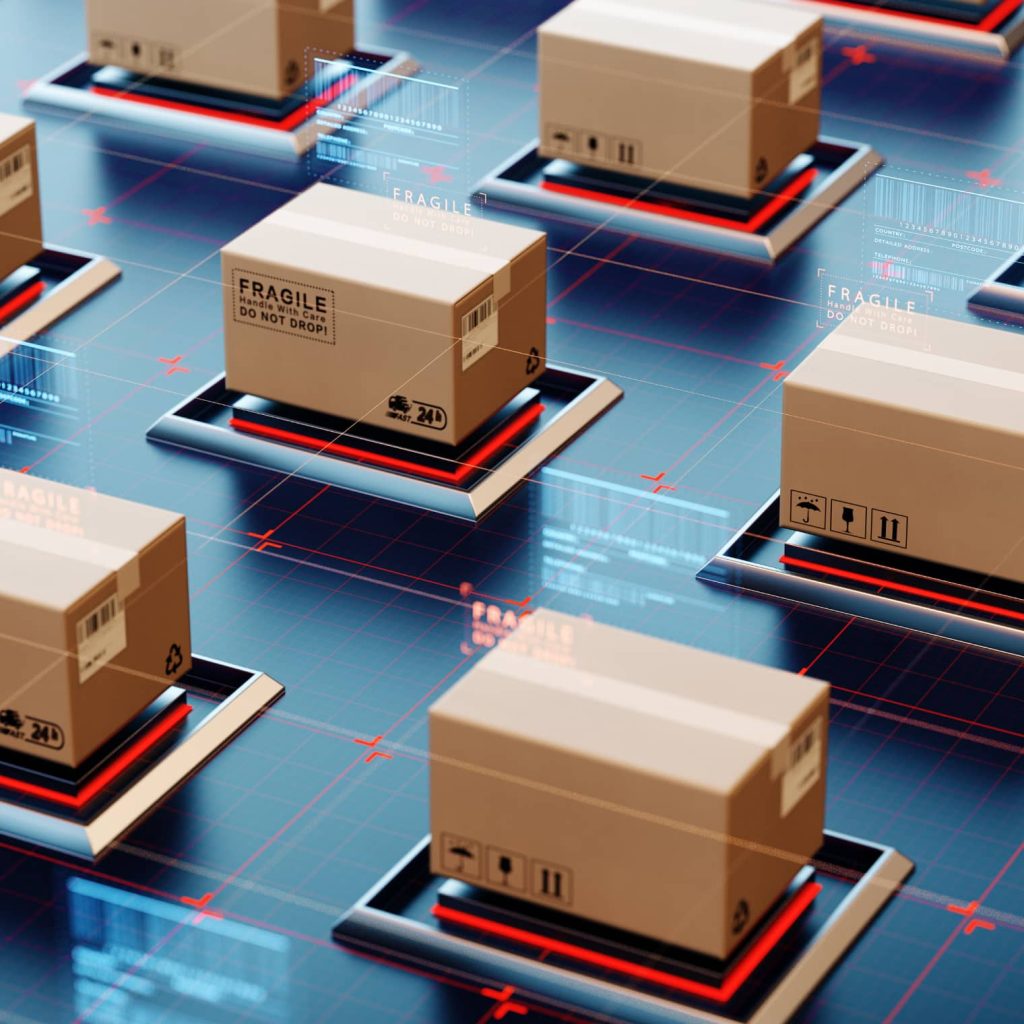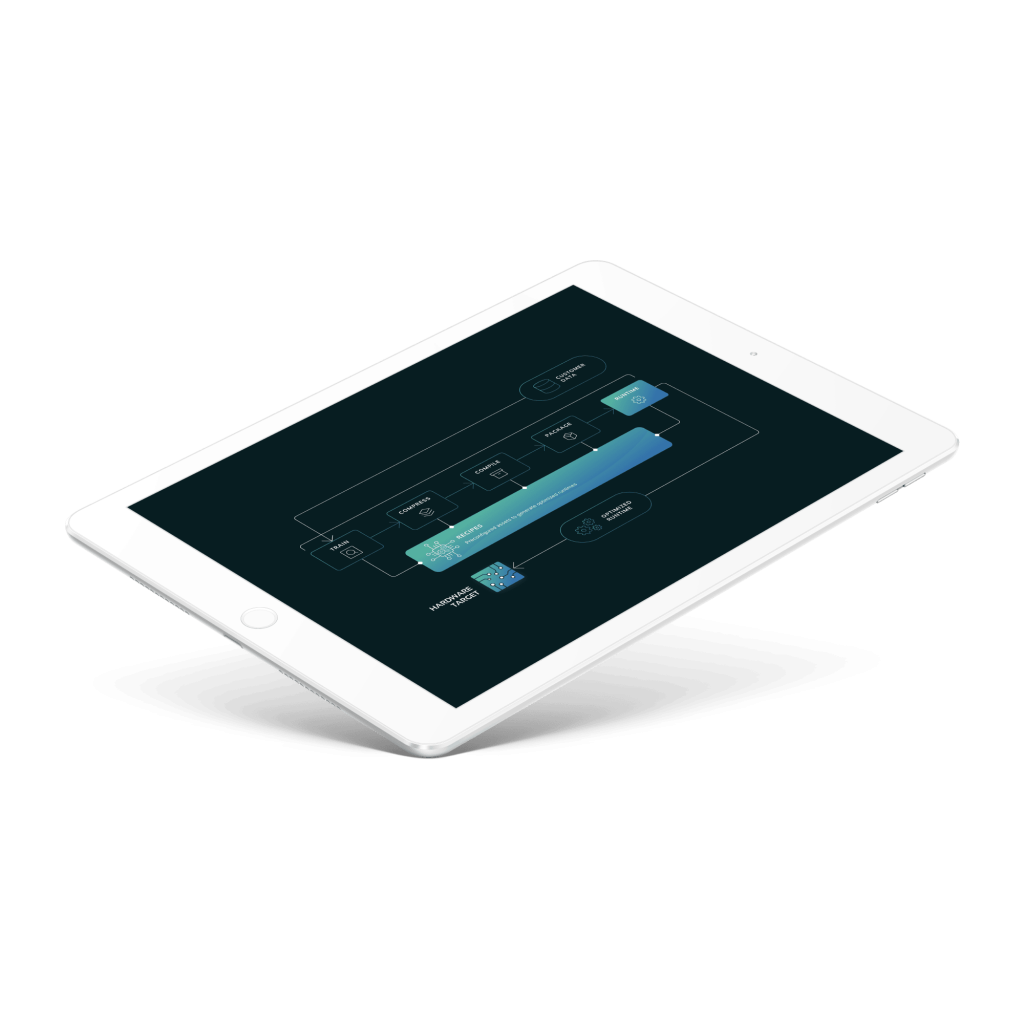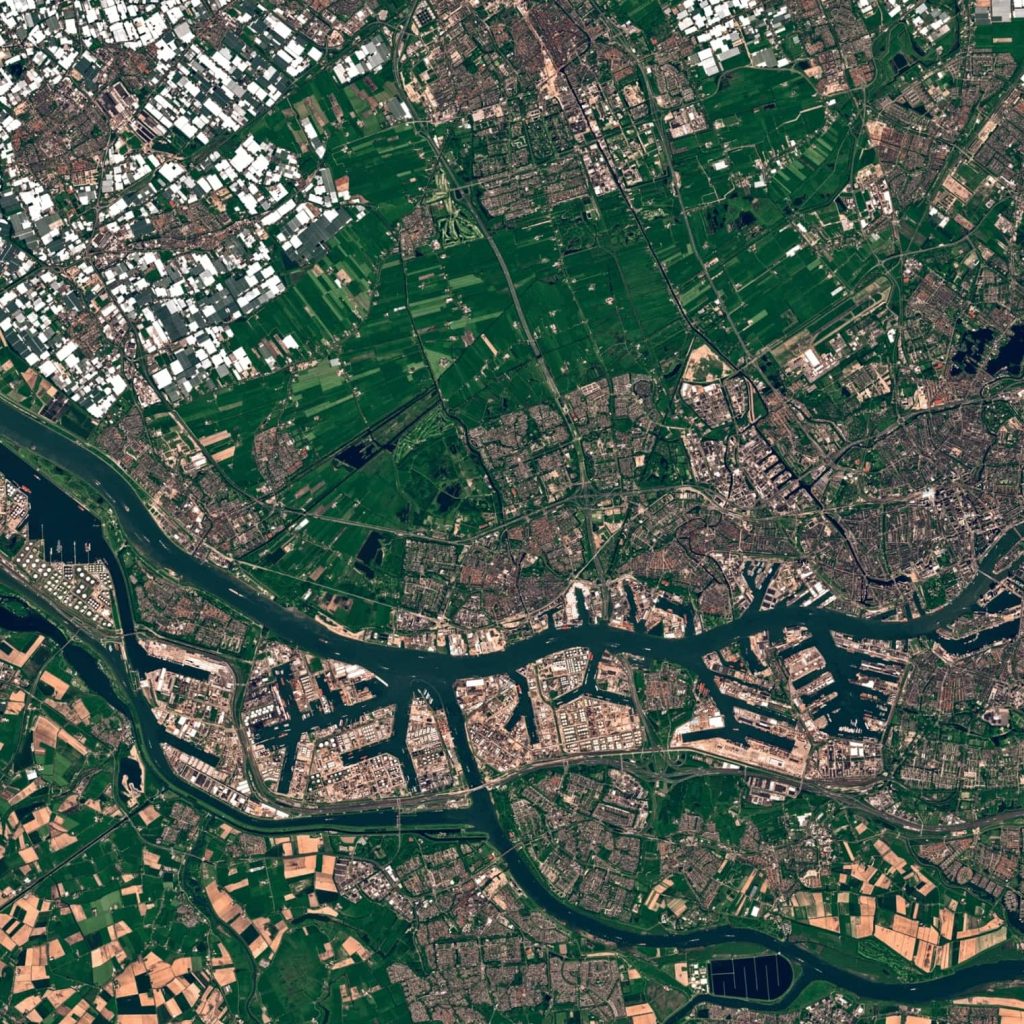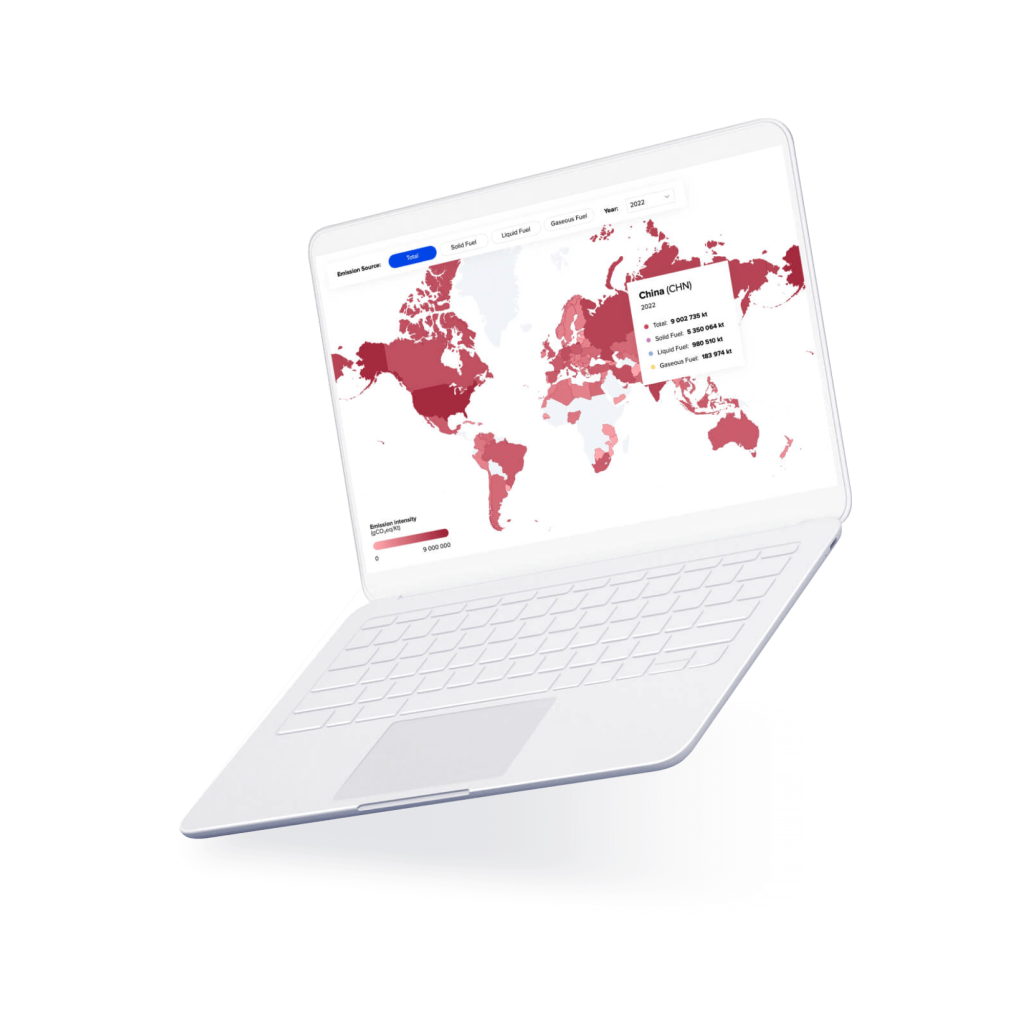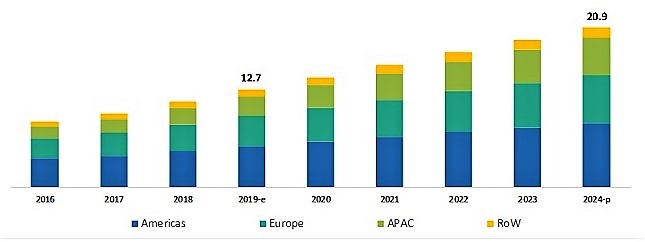In the times of COVID-19 outbreak digitalisation in the agricultural sector is rapidly accelerating. While the agricultural sector has to deal with workforce shortages due to lockdowns and movement restrictions, automation can become an answer, allowing to minimise losses and balance the supply.
Smart agricultural solutions like soil sensors, weather stations, drones and connected agricultural tools allow to monitor crops and livestock, and what's more, collect valuable data. Leveraging the potential of big data in agriculture and applying advanced analytics, farmers can transform this data into accurate predictions, allowing them to plan smarter scheduling, crop distribution and yields, manage risks and react to critical issues faster.
Where is the big data in agriculture coming from?
According to Research and Markets, the global agriculture analytics market is to reach $1,670.4 million by 2026. Momentum around data-driven farming is gathering thanks to technology like soil sensors, drones and livestock monitoring gadgets to produce reams of priceless information.
The end goal is to help agricultural businesses make better, more informed decisions, allowing them to tap into various advantages. Key to realising its potential lies within the part in the middle; the applications and practices which make sense and use of all this information, creating a new era of ‘smart farming’ for the world to behold.
How to use ?
The uses of big data in agriculture are diverse. Some of the more prominent include:
- Yield prediction
Yield prediction sees the use of mathematical models to analyse data around yield, weather, chemicals, leaf and biomass index among others, with machine learning used to crunch the stats and power the making of decisions. Predicting yields in this way can allow a farmer to extract insight on what to plant as well as where and when to plant it. Moreover, some technologies can help farmers to reach optimum distance between seeds and to define how deep to plant particular seeds. For instance, farmers usually plant 75 000-225000 soybean seeds per acre, taking that into account, we can realise the positive impact such technology might have on enlarging harvest potential and minimising expenditure.
The use of sensors for collecting data means that only a small amount of manual work is required to hand each business an instruction manual on how to guarantee the best return from their crops. According to the International Journal of Computer & Mathematical Sciences, predicting yields in this way should improve the production of crops in countries like India, where population increases represent a very real concern. - Risk management
One area that is becoming all the more influenced by connected devices and algorithms is risk management. It’s now possible for farmers to leverage a web of big data with a view to evaluating the chances of events like crop failure, and even improve feed efficiency within the production of livestock. The area of risk management created headlines in 2014 as advice from data scientists to Colombian rice farmers was said to have saved millions in damages caused by shifting weather patterns.
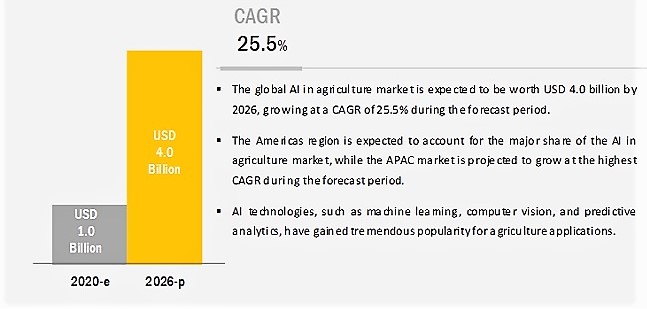
Source: MarketsandMarkets
- Food safety and spoilage prevention
According to WHO, illnesses and diseases resulting from food contamination affect 600 million people every year. A critical aspect of modern-day farming - allowing instant detection of microbes and incidents of contamination. The collection of data around things like humidity, temperature and chemicals will paint a picture of health around smart agricultural businesses. That level of insight should be of interest to organic farmers in the US, whose issues with GMO contamination between 2011-2014 was said to have caused damages of $66,395 per affected business. Perhaps an earlier detection may have lowered the repair bill, or at least reduced some of the wastage? - Operation/equipment management
Finally, we cannot underestimate how big data in agriculture can be aiding various aspects of the everyday running of a farming business. Equipment manufacturers like John Deere have already made a good start with their fitting of sensors around vehicles to aid their providing of data. Farmers can then log into special portals to manage their fleet and maintenance of equipment in order to reduce downtime and keep everything productive. As more companies provide solutions to aid areas of equipment management and supply chain optimisation, we can expect a much smoother delivery of crops to the market.
According to Lenntech, food crops irrigation uses up to 900 km3 of water yearly. Scientists at Connecticut University have introduced in-field soil moisture sensors, which allow reducing water consumption by around 35%. Efficient irrigation management powered by data solutions helps farmers to optimise costs and boost productivity.
Conclusion
Every farmer has a goal for their operation. Some of the more commonly cited are around improving profitability and efficiency, reducing the cost of an operation, or increasing product value. To achieve each goal, farmers must make better decisions and move beyond the use of general knowledge from research experiments, which can only carry them so far.
No business is the same, and there is now an increasing need for information generated in a location-specific manner, providing a solution which fits in line with what each farmer needs. Through big data and connected devices, every one of the goals around profitability, efficiency and cost management are not only achievable but completely realistic.
Looking to supercharge your agricultural business? Contact us to see how big data and connectivity can impact your organisation.

Related Insights
